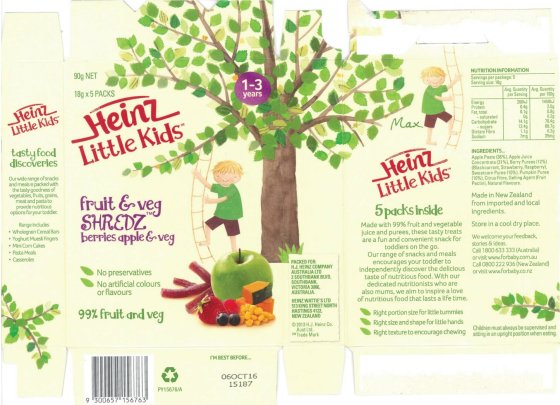
Adding one teaspoon or two of sugar to tea is normal. Adding 40 teaspoons of sugar to a can or energy drink is also normal. But it won't be normal for much longer.
Here is why:
Last week, the Federal Court gave a landmark decision that high levels of sugar in food are unhealthy because they lead to weight gain and dental caries. This is the first time this link has been made by the courts in Australia.
The decision concerned a Heinz snack food for children aged 1 - 3, called Shredz. The package contained images and words which gave the impression that the food was healthy. There was a young boy climbing a tree, a green apple, strawberries, pumpkin slices and corn kernels. There were statements - 99% fruit and veg, no preservatives and no artificial colours or flavours.
The food sticks inside the packet were high in sugar. It was not added sugar, it was sugar concentrate. Specifically, a high proportion was apple which had been mashed and dehydrated so much that the sugar level was 68.7% by weight. One serve had the equivalent of three teaspoons of sugar.
The Court heard evidence from expert nutritionists and dentists. It relied upon the World Health Organisation Guideline for sugar intake for adults which for a 2 year old child, the daily limit for added sugar / sugar concentrate is three teaspoons.
The Court concluded that the Shredz snack food was unhealthy because a child could be expected to consume more food with added sugar / concentrated sugar during the day, in addition to one serve of Shredz. It was also unhealthy in terms of dental caries because of the high concentration of sugar, and the 'stickiness' of the food sticks.
By formally proving the link between sugar and health, particularly in terms of weight gain, the public health consequences of excessive sugar intake have been emphasized. The momentum is building to restrict the use of sugar in food and drink, and to tax sugar (as many countries have already done).
